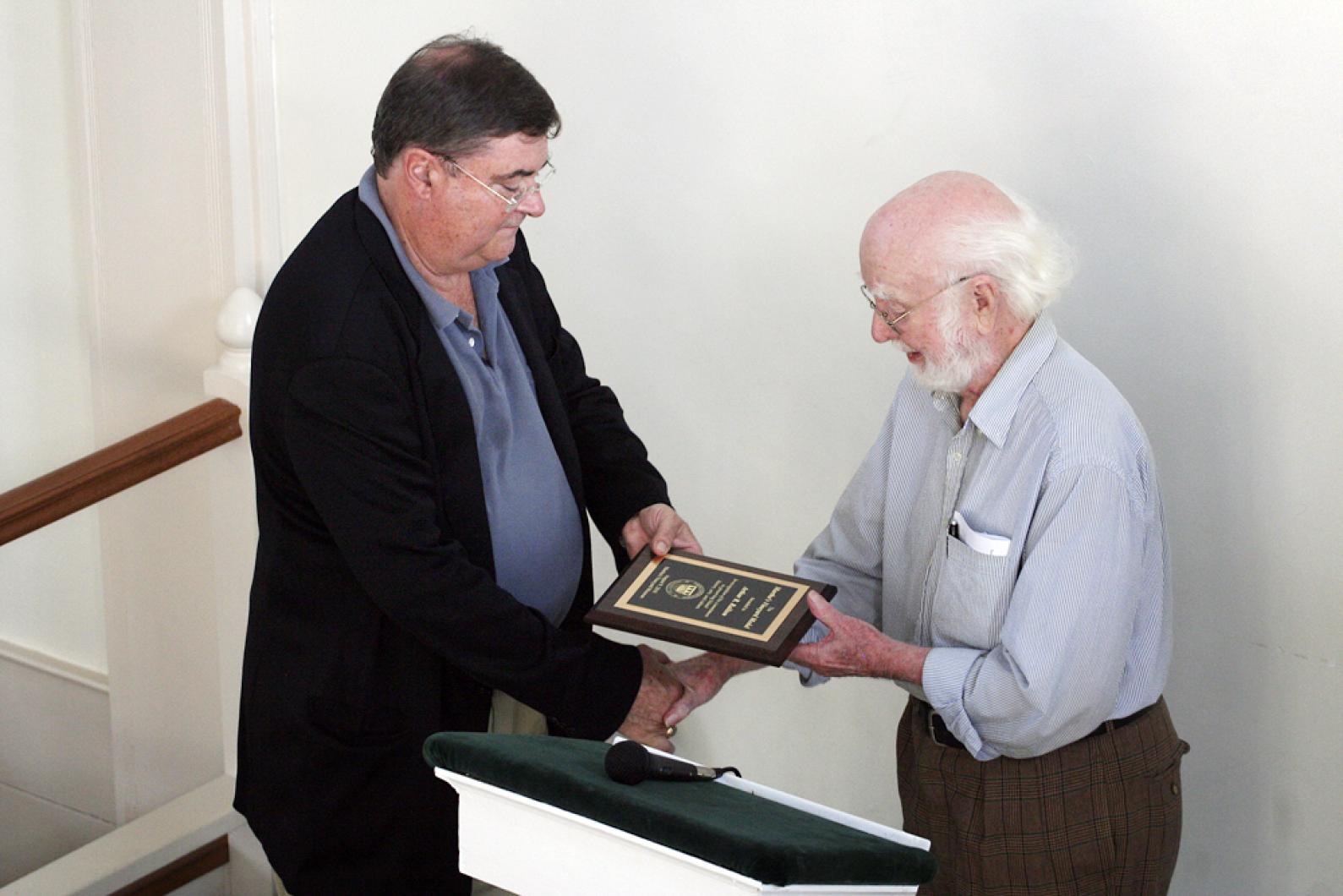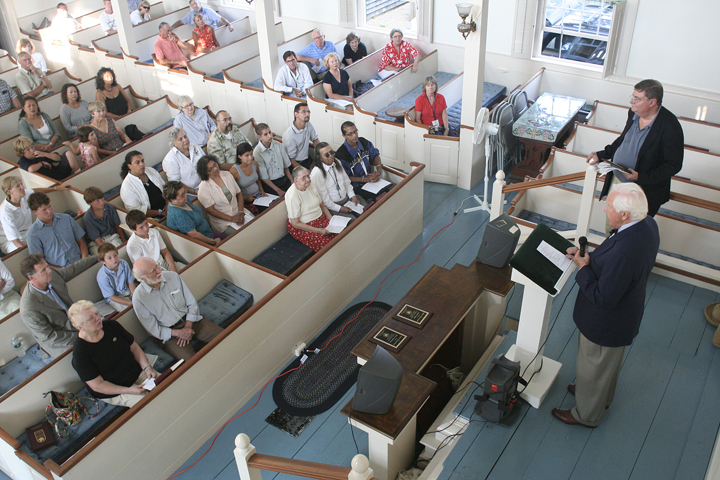The Vineyard represents centuries of personal tragedies, triumphs and the humdrum operation of day-to-day Island life.
“History is more than just politics, the military and social issues,” the American historian David McCullough reminded the audience at the Martha’s Vineyard Museum’s annual meeting and Martha’s Vineyard Medal ceremony. On Monday night at the Federated Church, the museum honored three men as guardians of Island heritage and culture: Mr. McCullough; Arthur Railton, the former editor of the Dukes County Intelligencer and a preeminent historian in his own right; and Tobias Vanderhoop, an emerging young leader in the Wampanoag Tribe of Gay Head (Aquinnah).
The evening began with a stirring introduction of Mr. McCullough by his son, David McCullough Jr.
Mr. McCullough, who has written all but one of his nine books at his house on Music street in West Tisbury on a vintage typewriter, reminded the audience of the remarkable history of the Island, and thanked the many Islanders who have contributed to his work over the years, including Drs. Peter Knapp and Milton Mazer, who helped him understand the psychosomatic aspects of asthma for his biography of Teddy Roosevelt, and Nat Benjamin who offered invaluable insight on 18th century sea travel for his profile of John Adams.
Kay Mayhew introduced Mr. Railton, author of The History of Martha’s Vineyard: How We Got to Where We Are.
“My favorite story about him is when the bones found in Jamestown, Va., were finally identified as those of the explorer Gosnold,” Ms. Mayhew said. “Some bright person called Art to tell him. His response was classic. He replied, ‘Well, we knew he was dead.’”
Mr. Railton, a former editor of Popular Mechanics, came to the Island in 1977 where he was convinced by then editor of the Dukes County Intelligencer E. Gale Huntington to take over editorial duties.
“He was 72 years old and he said he was getting too old for the job,” Mr. Railton said. “Well, I was 68 at the time and kept the job for 30 years. I finally got too old for the job.”
Studying his plaque, he said: “I accept this with a great deal of pride.”
Finally came the medal for Mr. Vanderhoop, a singer, dancer, storyteller, basketweaver and current administrator for the Wampanoag Tribe.
“Good evening, my name is Tobias Jonathan Vanderhoop,” he began, speaking in traditional Wampanoag. Mr. Vanderhoop, who graduated with a master’s degree from the Harvard Kennedy School in June (the first Wampanoag to graduate from the university since Caleb Cheeshahteaumuck in 1665), recalled a childhood spent in greater Boston, longing to return to his ancestral home of Aquinnah. One night after graduating from high school he lay awake at night and resolved to return to the tribe. He kept his word, telling his disbelieving mother of his plans the next day, and embarked on what has become a lifelong journey to rediscover the cultural history of his people.
“I have gotten to travel all over the commonwealth and all over the world to educate people about the Wampanoags,” he said. “But I never would have been able to do any of that if it wasn’t for the fact that my tribal community trusted me. They gave me that which I was longing for the most, which was the information about our culture and our history.”
The mood of the annual meeting was not entirely celebratory for the cash-strapped museum, though, and executive director David Nathans admitted as much in his opening remarks.
“Last year we did not make ends meet,” he said. “The museum, like many organizations, struggled.”
He said a sizable one-off “angel gift” was not repeated this year and that the museum is facing a deficit. He reminded the audience of the many exciting recent exhibits as an upside to the financial downside.
Mr. McCullough underscored the importance of the museum as the sole depository of the Island’s past.
“To adapt the observation of the late speaker Thomas Phillip O’Neill Jr. that all politics are local — all history is local,” he said. “There’s much more history to this Island, much more history to the people who have come and gone from this Island, than most people have any idea.”






Comments
Comment policy »